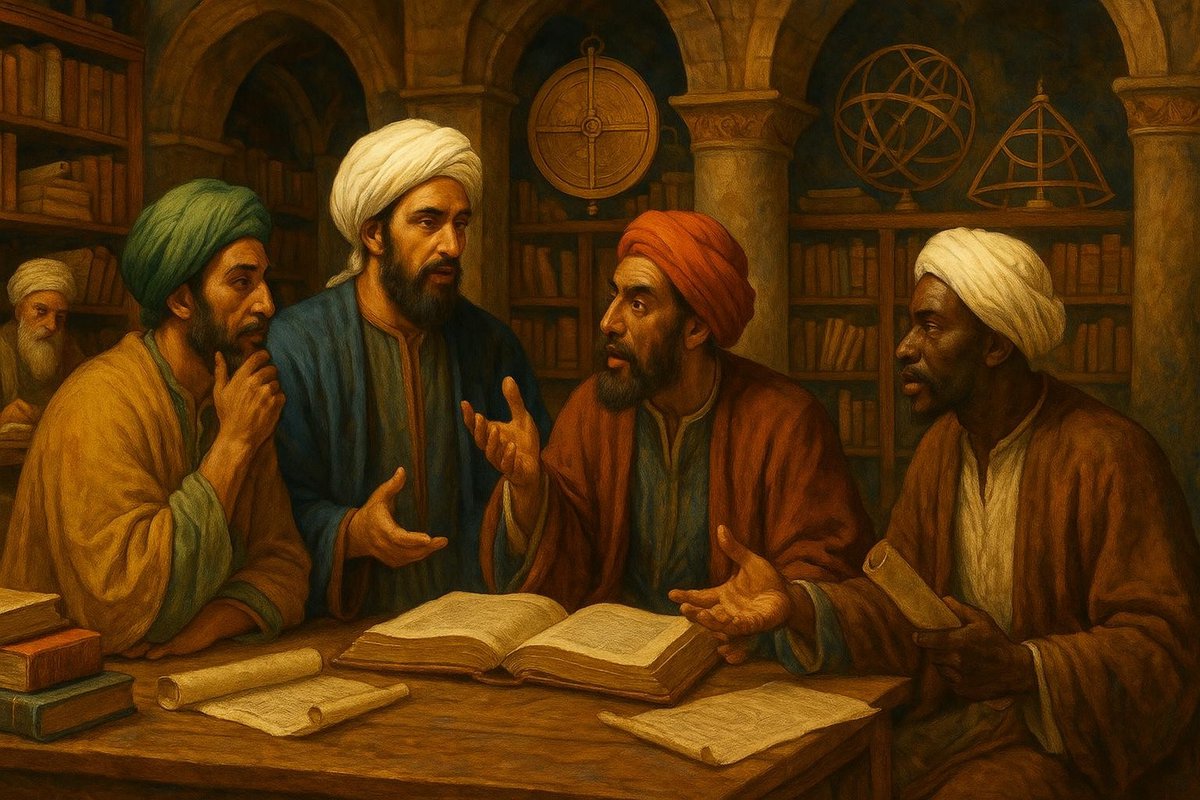
A Gateway to Understanding: Why Algebra Mattered
In the vast tapestry of human knowledge, algebra stands as a crucial thread, weaving together centuries of scientific and intellectual progress. Interestingly, many people don’t realize that its development depended heavily on the thriving academic institutions of the time. How did a branch of mathematics become a cornerstone of civilization? Let’s delve into the origins of algebra and the historical setting that made its discovery possible.
The Origins of Algebra
Imagine a time when the world was a mosaic of empires, each contributing a unique piece to the puzzle of human progress. Algebra, as a formal discipline, emerged in the golden age of the Islamic world, around the 9th century. This era was marked by immense scholarly activity, particularly in the Abbasid Caliphate, where the House of Wisdom in Baghdad served as a beacon of learning.
- Many believe the term ‘algebra’ itself derives from the Arabic word ‘al-jabr,’ which appears in the title of a pivotal work by Persian mathematician Al-Khwarizmi.
- This text, ‘Al-Kitab al-Mukhtasar fi Hisab al-Jabr wal-Muqabala,’ laid the foundational principles of algebra.
During this period, scholars were actively translating Greek, Indian, and Persian texts, synthesizing diverse mathematical concepts. This rich cultural exchange was fueled by institutions that prioritized intellectual pursuit, creating a fertile ground for algebra’s birth.
Key Figures and Their Contributions
As time goes on, it’s fascinating to see how certain figures stand at the crossroads of change. Al-Khwarizmi, often heralded as the ‘father of algebra,’ was one such individual. His work in the 9th century not only coined the term but also transformed mathematical thought.
- Al-Khwarizmi’s texts served as a bridge between arithmetic and algebra, introducing systematic methods for solving equations.
- His influence extended to medieval Europe, where Latin translations spread his ideas, reshaping Western mathematical paradigms.
Interestingly, the ripple effects of his contributions were profound. Renaissance scholars, such as Leonardo Fibonacci, encountered Al-Khwarizmi’s work through the translations, sparking a mathematical renaissance that paved the way for future discoveries.
A Turning Point: Institutions that Fostered Discovery
Of course, the story of algebra is not just about individuals but also about the environments that nurtured them. The period from the 9th to 12th centuries saw a proliferation of institutions dedicated to learning. The House of Wisdom in Baghdad was among the most prominent, serving as an intellectual hub where scholars from various backgrounds could congregate.
- These academies provided resources, collaboration opportunities, and an atmosphere that valued scientific inquiry.
- Universities in medieval Europe, inspired by Islamic centers, later adopted similar models, furthering the spread of algebraic knowledge.
Hence, it is no wonder that these institutions were pivotal in the dissemination of algebra, facilitating a cross-cultural dialogue that propelled the discipline forward.
Impact on the World
How does a discovery from centuries ago continue to influence us today? Algebra’s impact is far-reaching, affecting numerous fields beyond mathematics. Its principles underpin modern science, engineering, economics, and computer science.
- The methodologies developed for solving algebraic equations are integral to technological innovation and scientific research.
- Without algebra, the complex algorithms driving our digital age would be inconceivable.
The historical significance of algebra lies not only in its mathematical applications but also in its role as a symbol of human ingenuity, illustrating how knowledge transcends borders and epochs.
In conclusion, algebra’s discovery was not a solitary event but a tapestry woven by scholars and institutions committed to the pursuit of knowledge. Its legacy endures, reminding us of the power of academia and collaboration in shaping our world.
Fuel Someone Else’s Curiosity
If you found this exploration of algebra’s history intriguing, why not share it with others? Encourage a friend to dive into the fascinating journey of how a mathematical language transformed civilizations. Together, we can ignite a passion for understanding the profound influences that shape our world today.

Leave a Reply